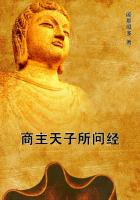The orthodoxy of the International was saved, but at the cost of its vitality.From this time onward, it ceased to be itself a power, but both sections continued to work in their various groups, and the Socialist groups in particular grew rapidly.Ultimately a new International was formed (1889) which continued down to the outbreak of the present war.
As to the future of International Socialism it would be rash to prophesy, though it would seem that the international idea has acquired sufficient strength to need again, after the war, some such means of expression as it found before in Socialist congresses.
By this time Bakunin's health was broken, and except for a few brief intervals, he lived in retirement until his death in 1876.
Bakunin's life, unlike Marx's, was a very stormy one.Every kind of rebellion against authority always aroused his sympathy, and in his support he never paid the slightest attention to personal risk.His influence, undoubtedly very great, arose chiefly through the influence of his personality upon important individuals.His writings differ from Marx's as much as his life does, and in a similar way.They are chaotic, largely, aroused by some passing occasion, abstract and metaphysical, except when they deal with current politics.He does not come to close quarters with economic facts, but dwells usually in the regions of theory and metaphysics.When he descends from these regions, he is much more at the mercy of current international politics than Marx, much less imbued with the consequences of the belief that it is economic causes that are fundamental.He praised Marx for enunciating this doctrine,[15] but nevertheless continued to think in terms of nations.His longest work,``L'Empire Knouto-Germanique et la Revolution Sociale,'' is mainly concerned with the situation in France during the later stages of the Franco-Prussian War, and with the means of resisting German imperialism.Most of his writing was done in a hurry in the interval between two insurrections.There is something of Anarchism in his lack of literary order.His best-known work is a fragment entitled by its editors ``God and the State.''[16]
In this work he represents belief in God and belief in the State as the two great obstacles to human liberty.A typical passage will serve to illustrate its style.
[15] ``Marx, as a thinker, is on the right road.He has established as a principle that all the evolutions, political, religious, and juridical, in history are, not the causes, but the effects of economic evolutions.This is a great and fruitful thought, which he has not absolutely invented; it hasbeen glimpsed, expressed in part, by many others besides him; but in any case to him belongs the honor of having solidly established it and of having enunciated it as the basis of his whole economic system.(1870; ib.
ii.p.xiii.)
[16] This title is not Bakunin's, but was invented by Cafiero and Elisee Reclus, who edited it, not knowing that it was a fragment of what was intended to he the second version of ``L'Empire Knouto-Germanique'' (see ib.ii.p 283).
The State is not society, it is only an historical form of it, as brutal as it is abstract.It was born historically in all countries of the marriage of violence, rapine, pillage, in a word, war and conquest, with the gods successively created by the theological fantasy of nations.It has been from its origin, and it remains still at present, the divine sanction of brutal force and triumphant inequality.
The State is authority; it is force; it is the ostentation and infatuation of force: it does not insinuate itself; it does not seek to convert....Even when it commands what is good, it hinders and spoils it, just because it commands it, and because every command provokes and excites the legitimate revolts of liberty; and because the good, from the moment that it is commanded, becomes evil from the point of view of true morality, of human morality (doubtless not of divine), from the point of view of human respect and of liberty.Liberty, morality, and the human dignity of man consist precisely in this, that he does good, not because it is commanded, but because he conceives it, wills it and loves it.
We do not find in Bakunin's works a clear picture of the society at which he aimed, or any argument to prove that such a society could be stable.If we wish to understand Anarchism we must turn to his followers, and especially to Kropotkin--like him, a Russian aristocrat familiar with the prisons of Europe, and, like him, an Anarchist who, in spite of his internationalism, is imbued with a fiery hatred of the Germans.
Kropotkin has devoted much of his writing to technical questions of production.In ``Fields, Factories and Workshops'' and ``The Conquest of Bread'' he has set himself to prove that, if production were more scientificand better organized, a comparatively small amount of quite agreeable work would suffice to keep the whole population in comfort.Even assuming, as we probably must, that he somewhat exaggerates what is possible with our present scientific knowledge, it must nevertheless be conceded that his contentions contain a very large measure of truth.In attacking the subject of production he has shown that he knows what is the really crucial question.If civilization and progress are to be compatible with equality, it is necessary that equality should not involve long hours of painful toil for little more than the necessaries of life, since, where there is no leisure, art and science will die and all progress will become impossible.The objection which some feel to Socialism and Anarchism alike on this ground cannot be upheld in view of the possible productivity of labor.















